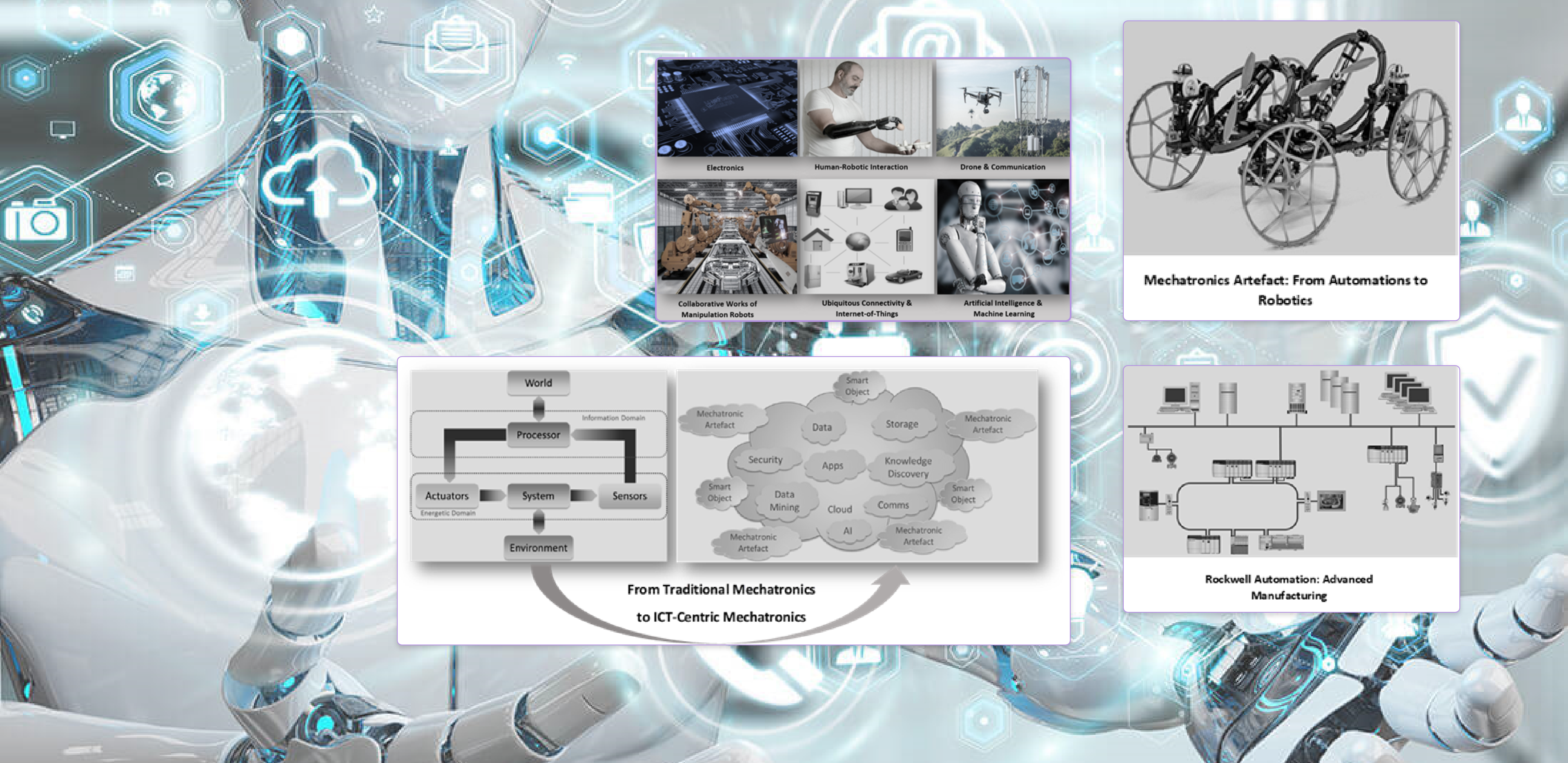
Course-Research Pathway: this pathway is for students who are interested in pursuing career more in professional and academic job with advanced and multidisciplinary knowledges in mechatronic products with the applied ICT. The students in this pathway will do course works as well as thesis for graduation.
Research-based Pathway: this pathway is for students who are interested in pursuing career more in doing advanced research to produce masterpiece of research publication in the scientific community. The students in this pathway will be required to conduct research more than taking course works with publication results and write thesis for graduation.
Both Course-Research and Research-based pathway has total of 54 credits for graduation. However, each pathway has different curriculum organizations as described below.
The graduates may pursue their career paths in both academics and professionals:
Area of Lecturing and Research: Control theory and power system
Area of Lecturing and Research: Telecommunication engineering
Director of Graduation School, Institute of Technology of Cambodia
Area of Lecturing and Research: Applied mathematics
Lecturer and researcher at Institute of Technology of Cambodia
Area of Lecturing and Research: Numerical method and optimization
Head of ECAM de La Salle, Institute of Technology of Cambodia
Area of Lecturing and Research: Robotics and control system
Lecturer and researcher at Institute of Technology of Cambodia
Area of Lecturing and Research: Robotics and control system
Lecturer at Institute of Technology of Cambodia
Area of Lecturing and Research: Power electronics and optimization
Lecturer at Institute of Technology of Cambodia
Area of Lecturing and Research: Machine Learning and artificial intelligence
Lecturer at Institute of Technology of Cambodia
Area of Lecturing and Research: Mechanical and material theory
Lecturer at Institute of Technology of Cambodia
Area of Lecturing and Research: Finite element methods
Lecturer and Researcher at Institute of Technology of Cambodia
Area of Lecturing and Research: Wireless Communication and Signal Processing
Lecturer and Researcher at Institute of Technology of Cambodia
Area of Lecturing and Research: IoT and Cloud Technology
Application is opened started from June until September.
An applicant must have following qualifications:
v Baccalaureate or Equivalent Diploma
v Engineer’s Degree or bachelor’s degree in electrical and electronics engineering, mechanical engineering, and information and communication engineering
v Certificate of English Proficiency
v Minimum GPA of 2.5 on 4.0 Scale
Download application form at: https://bit.ly/itcmaster2022-23
According to the Announcement of Graduate School of ITC 2022, the tuition fee is 1200USD per year or 650 USD per semester.
Building B-110, PO Box 86, Russian Conf. Blvd. Phnom Penh, Cambodia.
Tel : (+855) 12 321 684
E-mail : graduate@itc.edu.kh
Website : www.grads.itc.edu.kh
Copyright © 2022 Graduate school | Powered by Graduate School of ITC and Supported by AUF